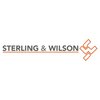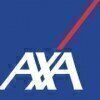Filter interviews by
KVS Group Interview Questions and Answers
KVS Group Interview Experiences
4 interviews found
I applied via Naukri.com and was interviewed in Mar 2023. There were 3 interview rounds.

(3 Questions)
- Q1. Tell me about an error in judgment that you made in the last year. What was its impact?
- Q2. Was there anything that you disliked about your previous job?
- Q3. When have you been most satisfied in your life?
(2 Questions)
- Q1. Explain the benefits of working in an Agile environment and the drawbacks as well.
- Ans.
Agile environment promotes flexibility, collaboration, and faster delivery of projects, but may lead to lack of structure and unclear roles.
Benefits include increased adaptability to changing requirements, improved communication and teamwork, and faster time-to-market.
Drawbacks may include lack of clear direction, potential for scope creep, and difficulty in measuring progress.
Examples of Agile methodologies include Sc...
- Q2. In network architecture, explain the role of DMZ.
- Ans.
DMZ is a network segment that separates an organization's internal network from an external network.
DMZ stands for Demilitarized Zone.
It acts as a buffer zone between the internet and the private network.
It contains servers that are accessible from the internet, such as web servers, email servers, and FTP servers.
It provides an additional layer of security by isolating the public-facing servers from the internal networ...
Interview Preparation Tips
Skills evaluated in this interview
Office Administrator Interview Questions asked at other Companies
I applied via Company Website and was interviewed in May 2023. There were 2 interview rounds.

(2 Questions)
- Q1. What is thevenins theorem?
- Q2. Explain thevenins theorem for ninth class students.
I applied via Walk-in
(1 Question)
- Q1. Maths questions as per+2 standard and pedagogy
Interview Preparation Tips
- Strategic Planning
PGT Maths Teacher Interview Questions asked at other Companies
I applied via Walk-in and was interviewed before Dec 2022. There were 4 interview rounds.

(1 Question)
- Q1. Ask Questions related to subject, methods etc
How to taught child who don't know anything about Computer?
Task given to perform
Interview Preparation Tips
Computer Instructor Interview Questions asked at other Companies
KVS Group interview questions for popular designations
Top trending discussions






Interview questions from similar companies

I applied via Walk-in and was interviewed before Feb 2021. There were 3 interview rounds.

(1 Question)
- Q1. Tell me about yourself.
Interview Preparation Tips

Associate Software Engineer Interview Questions & Answers
MAQ Softwareposted on 21 Feb 2022
I applied via Campus Placement and was interviewed before Feb 2021. There were 2 interview rounds.

Interview Preparation Tips

I applied via Campus Placement and was interviewed in Jan 2016. There were 6 interview rounds.
Interview Questionnaire
3 Questions
- Q1. Questions on resume
- Q2. Small Case study ( statistics )
- Q3. Why analytics and goal in life
- Ans.
Analytics helps me make informed decisions and achieve my goals in life.
Analytics provides valuable insights and data-driven solutions to complex problems.
Setting goals helps me stay focused and motivated towards achieving personal and professional success.
By analyzing data and setting specific goals, I can track my progress and make necessary adjustments to reach my objectives.
For example, in my previous role as a mar...
Interview Preparation Tips
Experience: Dual Degree students with decent CPI, relevant projects and extras
Tips: Highlight subjects and projects involving data mining, machine learning, marketing research
Round: Test
Experience: PST had 26 questions to be done in an hour (3 cases) and 20 QUESTIONS in 30 mins general apti (level: 2-3 of Arun sharma)
Tips: practice!
Duration: 1 hour 30 minutes
Total Questions: 46
Round: Technical + HR Interview
Experience: Since my resume was filled with
College Name: IIT Kanpur

I appeared for an interview before Jun 2016.
Interview Preparation Tips
Experience: McKinsey looks for a spike in your resume, people who have commendable achievements is their field of choice, academics, extra curriculars or sports. So be sure to make your resume accordingly. McKinsey adds a lot of weight-age to formal awards, scholarships, achievements (like inter-IIT) etc. But if you don?t have them (like me) you just have to make extra effort to show that you have equivalent achievements.
Round: Technical + HR Interview
Experience: First I was asked about myself and mostly my connection to dance and the dance club. (Some interviewers do this to make you comfortable at the same time analyzing your personality). In the first interview I was given an estimation case about the dish TV industry. Here the interviewer was mostly interested in my approach to solving the problem and if applicable my numerical skills. The second interview was a pure business case about the printing business. Here my creativity and business sense (read common sense as applicable to a business situation) was put to test.
Tips: Take on every interview as if that job doesn?t mean anything to you.

I applied via Walk-in
Interview Questionnaire
2 Questions
- Q1. Heathrow airport wishes to add a 5th terminal to its existing 4 terminals. Should it go ahead?
- Ans.
Yes, Heathrow airport should go ahead with adding a 5th terminal.
Heathrow is one of the busiest airports in the world and needs to expand to accommodate increasing demand.
A 5th terminal would provide more capacity for airlines and passengers, reducing congestion and improving the overall experience.
The construction of the terminal would also create jobs and boost the local economy.
However, careful planning and consider...
- Q2. Not a formal case, but broad industry level strategic discussions about IT & IT Products and Innovation
Interview Preparation Tips
Experience: I started off saying that the problem statement looks like it’s a Go/NoGo decision we have to help make, so first we should establish the exact objective against which we would measure our decision. Once the objective is clear, we would need to establish our current performance against the objective, what is the target level we wish to achieve on that particular objective and then evaluate if the new terminal would help us achieve that or not. But before that I would like to clarify about exactly what is meant by a terminal here.
JC: Heathrow is one of the busiest airports and already has 4 different passenger terminals, now they want to add a 5th. A terminal provides the usual services like Bays for Boarding & disembarking, Check-In, Security, Lounges & shopping areas etc.
Me: Great, do we also have to look at the financial and operational viability of the terminal or that is not a concern.
JC: for the purpose of discussion let’s ignore that, those would not be the constraints.
Me: Ok, so maybe we should the start looking at what the administrations core objective is for the new terminal. Why does it want to come up with a 5th terminal?
JC: Why don’t you tell me what those objectives could be?
Me: Well there could be many (started jotting down options in parallel as I spoke): 1) increase the #Passengers served per year, 2) Reduce Flight Congestion if any, 3) Reduce the Time spent by flights on the airport, 4) Increase the airports revenue sources. Am I missing any other?
JC: No I think you have mentioned the major ones, let’s briefly talk about each of these. What do you mean by the revenue sources?
Me: Then we had a brief discussion about revenues from shopping areas etc. Then we came to Flight congestion – primary metric there was time spent in air waiting for permission to land etc. Then we came to #Passengers served per year which is more of a demand metric and effectively dependent on the number of flights we can serve per day. We also discussed Time spent by flights on the airport and split that into further two types – flight landing and takeoff time and turnaround at the gates. At the end of this brief digression it emerged that if Time spent by Flights on airport can go down, #Flights can go up and so can #passengers, at the same time congestion can go down as well. Me: (summarizing) So is it fair to say that the objective of building the 5thterminal is to achieve a higher capacity at the airport and our problem definition is to evaluate that claim?
JC: Yes, if you wish to frame it so - effectively our problem definition is if the 5th terminal adds to the capacity of the System? Me: Good just give me a minute to put my thoughts in place as to how we can go about evaluating this?
JC: Sure..
Me: Ok as I mentioned, what we need to decide what is the exact metric used for measuring Capacity? Then what is the current value of airport for that metric? Then what impact would the new terminal on the level of the metric? That should lead us to an answer.
JC: Ok, so what do you want to know
Me: How do airports measure their capacity?
JC: Two commonly used metrics are ATM – Air Traffic Movements, and MPPA – Million Passengers Per Annum. For our discussion lets focus on ATM.
Me: So just to clarify ATM refers to a single air traffic movement, therefore the turnaround of one flight i.e. landing and take off would count as one or two ATMs?
JC: Two Me: Ok, so do we know what is the current ATM?
JC: How would you find that out?
Me: well the annual ATM would be average Flights per day * 365 * 2 JC: Right lets keep the analysis to per day Me: Ok so what’s the current #daily flights?
JC: Am not sure why that is relevant here for answering our question but lets say 100.
Me: No, this would help us by how much will the Terminal increase the capacity. Ok so how many Bays would there be in the new terminal?
JC: 50
Me: And do we know on average one flight spends how much time at a Bay?
JC: 60 minutes
Me: Is that number in line with international standards or is there scope to impact that by way of terminal design or operations?
JC: No that’s about the best you can get ☺
Me: Fair is the distribution of traffic the same through out the day, or in other words is the demand pattern similar through out the day or is it varying with time? JC: Let’s assume that a bay is utilized effectively only for 12 hours in a day. Me: Ok so that means a given bay has the capacity of 2 ATMs per hour or 50 bays together would add 50 * 2 *12 or 1200 ATMs
JC: So should we add Terminal 5?
Me: Well yes from our analysis so far it does appear that adding the 5 Terminal could add upto 1200 ATMs per day and therefore one should go ahead.
JC: But what was our problem definition?
Me: (a little flustered) will the new terminal add to the capacity of the airport?
JC: yes of the entire system. So will it?
Me: (suddenly a light bulb strikes ☺, smiling) Ok I possibly get the drift of what you are trying to hint at, while the terminal has the potential to add so many ATMs, it is not necessary that the capacity of the entire system will be incremented by that number.
JC: Correct, and why that may be so? Me: Because the bottleneck in the system may be some where else.
JC: Right and so what defined a bottleneck Me: In any system the resource which has the lowest capacity and for which the implied demand is higher than its capacity constitutes a bottleneck, and also limits the throughput of the entire system.
JC: So what else could be a bottleneck in the system? Me: Runway JC: Ok and how can we find that out?
Me: We need to evaluate the utilization of the runway. How long does it typically take for a successive takeoff or landing on a given runway?
JC: How can we find that out?
Me: A mathematical way to do that would be to find the typical distance an aircraft travels while landing/takeoff and at what speed to find the time for which it uses the runway, another could be that there would be some minimum time set by the ATC/guidelines as the minimum inter flight time that would limit the number of planes that can use a runway.
JC: Right, let’s leave the mathematical way, what do you think the other number is?
Me: I don’t know for sure, but from my observation the time in India is something like 5-6 minutes between flight landings/takeoffs
JC: Ok those might be t he numbers in India, but Heathrow is a very busy airport and there the minimum time is 90 seconds.
Me: (quickly doing the numbers) 90 seconds implies 1 ATM every 1.5 minutes or a max of 40 ATMs per hour or a max of 40*24 = 960 ATMs per day per runway.
JC: Correct, so assuming there are 2 runways already what would now be the impact of adding the terminal 5 on the capacity of the system?
Me: Let’s assume that the current capacity of the terminals is X, then the current capacity of the system is min(960*2, X), and after the new terminal comes online the capacity of the system would become min(960*2, X + 1200). (I actually clearly wrote down the mathematical form) So depending on the value of X we will know how much the capacity of the system can improve by, and our decision should be driven by if that new number is enough to achieve our goal or not? For any positive value of X > 720 it seems we will only be able to go up to a max 1920 ATMs per day, without adding a new runway or decreasing inter ATM time for runway usage.
JC: Good I think we are done with the case. Do you have any quick questions for me?
Me: Sure why don’t you tell me a bit about the nature of work you have been doing and the kind of work BTO London does?
Tips: Listen carefully, especially the case question/problem framing Maintain a pleasant disposition, Do Smile Be ready to admit your mistakes and over sights Speak slowly (Especially when dealing with international interviewers) Write down stuff in your pad - write legibly Steps should be Think, Write, Read out & Discuss. Do revise the core concepts – just helps you with the right terminology in he interviews. On the interview day take each interview on by one – Never think about any that you have already given, and nor about any to come.
Round: Case Study Interview
Experience: NFK: McKinsey has done some work in innovation in the BPO and outsourced project management space..
NFK: right.. they are operational excellence frameworks we have come up with to assess the best practices in the BPO and outsourced application domains.. so the question is if you were to develop a similar framework for excellence in the product development or product development outsourcing space what metrics do you think can be used to measure those?
NFK: Ok..
Tips: If possible do read a bit about the interviewer’s background. You wouldn’t get to know your exact interviewers till shortly before the interview so you obviously can’t read about all, but try to read up about the senior people as well as people who will be from similar backgrounds as yourself. Excellent way to do that is to get on to company sites and browse for interview panelists profiles. In the case of McKinsey, try to get to McKinsey Quarterly, and then search for the interviewer and articles written by the person Be prepared to get the broad discussion cases even in the first round. Have a perspective on the industry of your choice and or background – again a good way to do that is to browse articles and industry reports. If you are able to go through even one consulting firms site reasonably you should be in good shape. Try to change the plane of your answers depending on the interviewers interests – when to give thr 50,000 Ft view and when to give the 100 ft view. In hind sight I think the corporate strategy course had a lot of articles about outsourcing and different models of comp advantage for multinational organizations and how to leverage offices in different geographies. Though I myself didn’t recall much of that article but then it just shows you never know which reading might come in handy where ☺Have questions that you want to ask ready
Skills: Case Solving Ability, Case Analysis
College Name: Indian School Of Business (ISB)

I applied via Walk-in
Interview Preparation Tips
Experience: Here we had to look at alternatives, such as cost of wearing glasses all your life, and the amount you would be spending, and discounting the amount you spend each year. I mentioned the cost of glasses, doctor visits, contacts, also laser surgery etc, to finally compute the price.
The second case which I got in the 3rd round, was also about a medical company which was facing a problem of falling profits. Here there were several problems, low productivity, and falling sales as well. Here the sales force was required to convince the doctors about its products, as they would then prescribe the medicines. Important thing here was whether they were targeting the right doctors who had a lot of patients, whether doctors were already loyal to some other company etc.
Tips: Practising a lot of cases not only with others, but also going through solutions on your own helps a lot. It is important to keep analyzing your mistakes rather than doing a lot of cases. HR answers are probably even more important than the case themselves, so it is important to prepare them well in advance.
Skills: Case Solving Ability, Case Analysis
College Name: IIM Lucknow
KVS Group Interview FAQs
Tell us how to improve this page.
Interview Questions for Popular Designations
- Associate Interview Questions
- Software Engineer Interview Questions
- Associate Software Engineer Interview Questions
- Graduate Engineer Trainee (Get) Interview Questions
- Accountant Interview Questions
- Test Engineer Interview Questions
- Data Analyst Interview Questions
- Deputy Manager Interview Questions
- Show more
KVS Group Interview Process
based on 2 interviews
Interview experience
Interview Questions from Similar Companies
KVS Group Reviews and Ratings
based on 19 reviews
Rating in categories
|
Teacher
8
salaries
| ₹0.8 L/yr - ₹6 L/yr |
|
Primary Teacher
4
salaries
| ₹2 L/yr - ₹3.2 L/yr |
|
Computer Teacher
4
salaries
| ₹0.2 L/yr - ₹5.5 L/yr |
|
Front Office Receptionist
4
salaries
| ₹18.2 L/yr - ₹18.2 L/yr |
|
Teacher Educator
4
salaries
| ₹0.6 L/yr - ₹2.5 L/yr |

MagicBricks

State Street Syntel

Sterling & Wilson

AXA Business Services
- Home >
- Interviews >
- KVS Group Interview Questions










